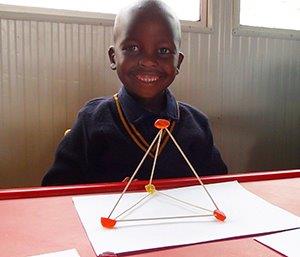Latest News Archive
Please select Category, Year, and then Month to display items
22 September 2021
|
Story Michelle Nöthling
|
Photo Supplied
 Annemarie Le Roux.
Annemarie Le Roux.
“I love working with children.” This is one of the first things Annemarie le Roux mentions when asked to describe herself. This love for children propelled Annemarie into the field of education and she graduated in 2006 with a BEd in Foundation Phase at the UFS. Annemarie immediately immersed herself in the Deaf community, enriching the lives of children at the Thiboloha School for the Deaf in Qwaqwa and the De la Bat School for the Deaf in Worcester.
The academic world enticed Annemarie back to the University of the Free State (UFS) and she was appointed as a junior lecturer in the Department of South African Sign Language (SASL) and Deaf Studies in 2013. Going from strength to strength, Annemarie completed her master’s degree in SASL in 2019, and published an
article earlier this year that she co-wrote with Marga Stander. In this article, they found that SASL “has become an increasingly popular language that hearing university students want to learn as a second language” and subsequently explored different teaching methods used for this emerging group of interested students.
Although now firmly established in academia, Annemarie is still committed to the practical application of SASL. “I am closely involved in student and community engagement through the
SIGNALS Sign Language student association that helps empower the Deaf community and South African Sign Language.” She also interprets for the Deaf community whenever she gets an opportunity, as well as for Deaf students in class and meetings.
On the importance of Sign Language and the recognition of the Deaf community in South Africa, Annemarie believes it will open greater opportunities for development. “More people will be able to learn SASL, and it might even become a subject in school for hearing children.”
Science 4Fun, collaboration between CUT and UFS community engagement
2017-08-16

For Grade R learners at Nzame Primary, their
basic Geometry insight about shapes advanced
to engineering skills when they built modern pyramids,
connecting jelly sweets and sosatie sticks.
Photo: Supplied
Any phase in a learner’s life can be the right time to explore science. As for Grade R learners at Nzame Primary School in Mangaung, it all started when their Deputy Principal, Charles Busack, attended the Global University for Lifelong Learning (GULL) workshop coordinated by the university’s Community Engagement in October 2016. The GULL network enables its affiliated organisations to recognise the individual and collective efforts of those who are creating progressive transformation in communities and in the workplace. Consequently, a community-based initiative, Science4Fun, was developed and launched at the primary school, where learners would start to experiment with science through play.
University students instrumental in teaching
Every Tuesday morning, these fun science activities form part of the foundation phase programme, in which Dr Elizabeth Conradie of the Central University of Technology (CUT) and four postgraduate Science students from the UFS, engage teachers and learners in exciting experiments and demonstrations.
Most people just know pyramids as big, impressive structures built a long time ago in Ancient Egypt. However, for Grade R learners at Nzame Primary, their basic Geometry insight about shapes advanced to engineering skills when they built modern pyramids, connecting jelly sweets and sosatie sticks.
Laying a foundation for the future
According to Dr Conradie, more fun exercises are lined up for curious minds, exploring other sciences such as Chemistry and Mathematics, combined with music. The initiative will assist to equip learners with the basics of Science into more advance learning phases of the schooling years, giving them an advantage.